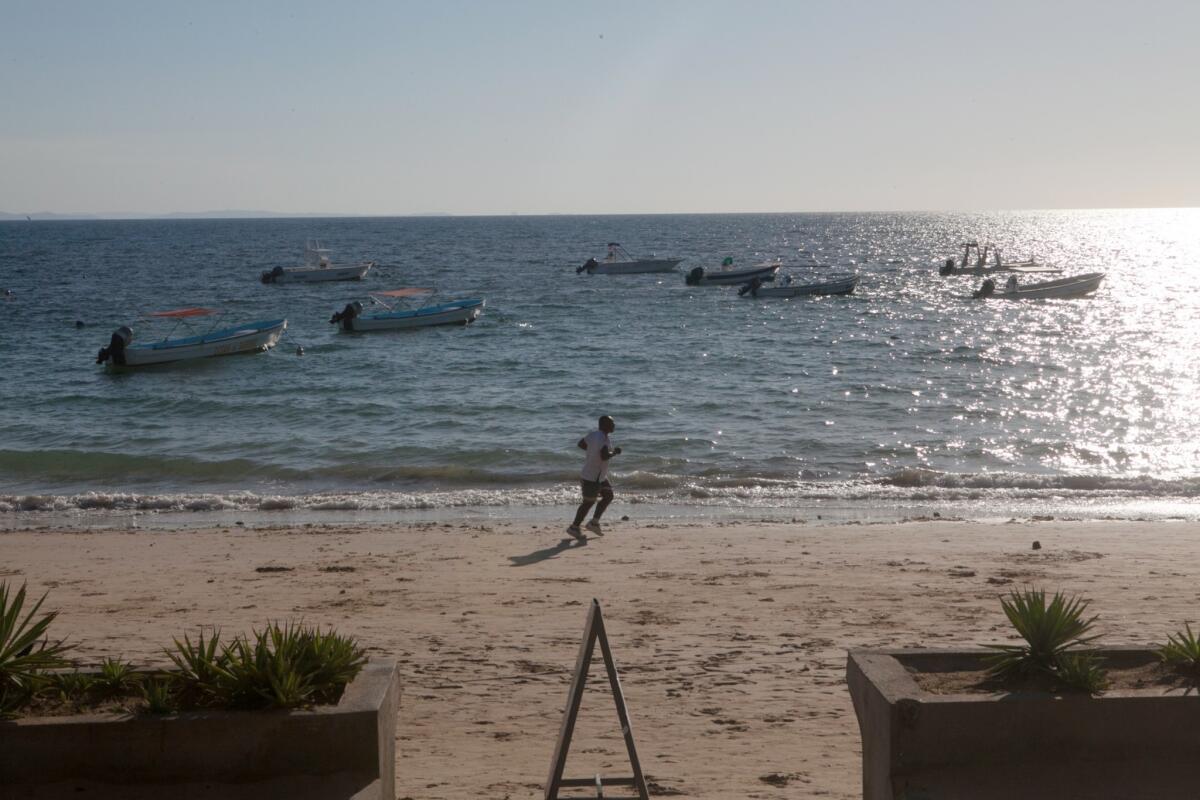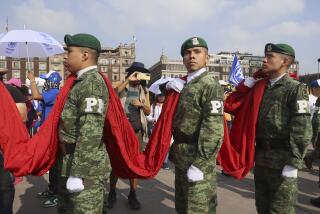Madagascar hopes election will end nearly five years of crisis

JOHANNESBURG, South Africa -- Madagascar is set to hold elections Friday, trying to shrug off the effects of a 2009 coup that plunged millions of people into poverty and hunger due to subsequent African and Western sanctions and withdrawal of budget aid.
The efforts of donors to punish the country’s politicians have backfired and hurt its most vulnerable people, especially children, U.N. humanitarian agencies said Monday.
Madagascar, a country that relied on donors to cover about 40% of its budget in 2008, is a study on what goes wrong after a coup: Tourism evaporates, investors go elsewhere and international donors drastically cut their support.
“Before the coup, Madagascar was seen as a donor darling. Things were coming up. They were going to reach their Millennium Development Goals,” said UNICEF’s Madagascar representative, Steven Lauwerier, who was in Johannesburg on Monday.
He was referring to a list of eight development targets for 2015 set by the U.N. in 2000, including eradication of poverty and hunger, universal primary education and improved maternal and infant mortality rates.
Now Madagascar’s indicators are heading in the wrong direction, he said.
According to the U.N., 50% of its children are chronically malnourished, making the country the sixth worst in the world on that measure. The percentage of children living in poverty (in households living on less than $2 a day) rose from 72% five years ago to 84% now.
In the same period, Madagascar also slumped 11 points on the Mo Ibrahim good governance index, which measures good governance in Africa. It ranks 151st of 187 countries in the U.N. development index, which looks at key development indicators affecting human welfare.
“It’s a bit of a silent crisis. In the last five years ... in Madagascar things have actually got worse or stagnated,” Lauwerier said.
In January 2009, the mayor of the capital, Antananarivo, a former disc jockey named Andry Rajoelina, ousted President Marc Ravalomanana with the backing of the army.
That led to African Union and Southern African Development Community sanctions. Western agencies and nations withdrew budget support. Tourism, a key industry, collapsed. The economy declined sharply, and unemployment spiked. As joblessness grew and desperate people migrated to the capital looking for work, child sex exploitation and sex tourism grew sharply.
Every hour, five children died, Lauwerier said, and eight women died in childbirth every day. With the budget squeezed by aid cuts, the government shut more than 260 rural health centers and vaccinations plummeted. The government also passed on education costs to parents, resulting in half a million children dropping out of school.
The government also slashed its budget for water and sanitation. Madagascar is the fourth-worst country on the continent in relation to access to clean water, and only 15% of people have access to proper sanitation, the U.N. said.
Each year, Madagascar suffers from cyclones at the height of the crop season, said Ignacio Leon Garcia, head of the U.N.’s Office for the Coordination of Humanitarian Affairs for southern Africa.
“The country is extremely prone to natural disaster. We have a drought that’s affecting 58% of the population. Whatever the outcome of the election, you will have cyclones at the beginning of the year. They will be confronting a natural disaster in the next few months,” he said.
Agricultural production, regularly hit by the cyclones, has also affected by a locust plague, said Maherisoa Rakotonirainy, Madagascar representative for the World Food Program. He said 88% of the population will have to deal with faces food insecurity in coming months, with 28% of those facing severe hunger.
Lauwerier said it is time to rethink sanctions, which were designed to pressure politicians but have merely added to poverty and social crisis. Some aid returned to Madagascar after a political road map to elections was agreed on in 2011 and a government of national unity installed. However, until free and fair elections are held, the bulk of aid to the country will not return.
“There’s hope,” Lauwerier said. “People are relieved the elections are coming because they want change, but also they want respect for their country to come back.”
Even if the election is successful, efforts to restore tourism face steep challenges after severe deforestation on much of the island destroyed habitat of its unique wildlife, including lemurs, a major tourist draw.
The business has also been hit by an ugly incident this month at a popular tourist destination, Nosy Be, in the northwest of the country: A mob accused two foreign men of being human organ traders after after the body of a boy was discovered. The men were burned them alive on a beach frequented by travelers.
More than two dozen people were arrested in relation to the killings, but Western governments issued travel warnings telling people to avoid the region and for those in the area to remain inside and avoid crowds.
There are more than 30 candidates in the presidential election, but the rivals in the 2009 political crisis, Rajoelina and Ravalomanana are both barred from running. If no candidate wins more than 50% of the vote, a runoff is set for December.
AlSO:
In China, poppy seedpod is a spice too hot to handle
Passenger train bombed in Pakistan, at least seven dead
In Canada’s Alberta province, oil sands boom is a two-edged sword
Twitter: @latimesdixon
More to Read
Sign up for Essential California
The most important California stories and recommendations in your inbox every morning.
You may occasionally receive promotional content from the Los Angeles Times.










